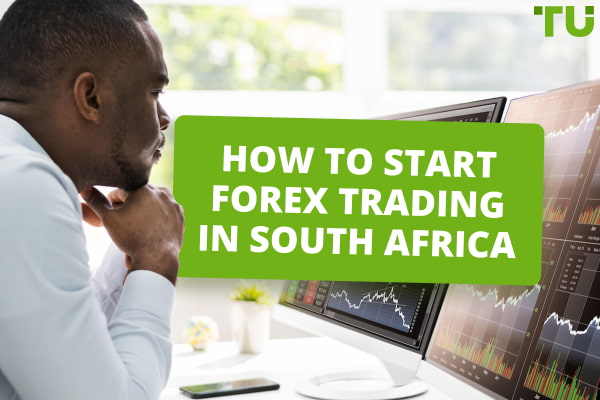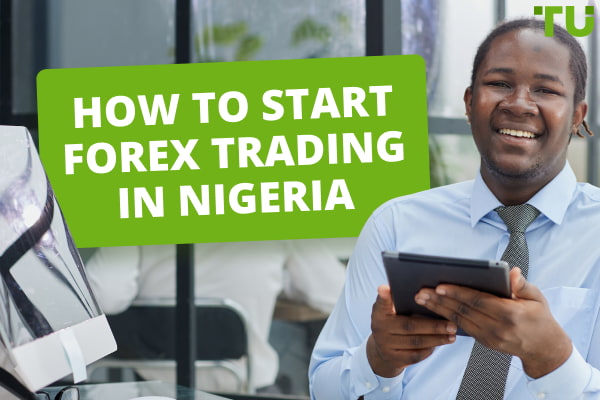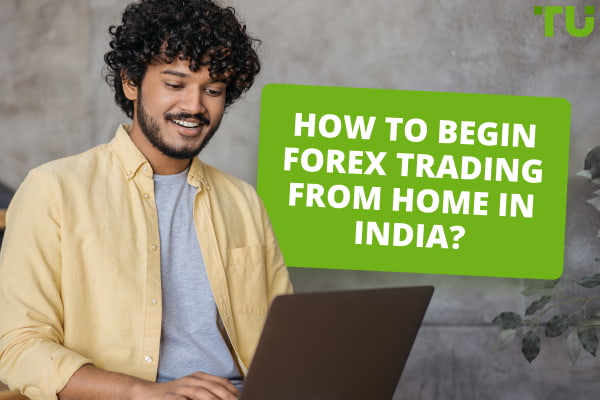How To Legally Start Forex Trading In Saudi Arabia
Forex trading is legal in Saudi Arabia, but Saudi brokers and investors must be approved by the CMA.
-
Forex trading is widely considered halal, but there is ongoing debate.
-
Traders can opt for Islamic trading accounts to make sure they don’t break Islamic law.
-
To start trading Forex, choose a reliable broker that is regulated by the CMA, or if international, is licensed to operate in Saudi Arabia.
In recent years, the Kingdom of Saudi Arabia has made steps toward modernizing its economy, transitioning from an oil-dependent country to one with diverse sources of income that can compete on the world stage. With this economic transformation, the popularity of Forex in the country has grown, increasing demand for skilled Forex professionals and spurring on the creation of new Saudi brokerage firms and investment companies.
The surge in popularity of Forex in a country like Saudi Arabia has given rise to some legal complexity, however. As a predominantly Islamic country with very tight financial regulations, traders in Saudi Arabia have a lot of considerations that they need to be aware of. In this article, we’ll take a look at what those considerations are, explaining whether Forex trading is legal in Saudi Arabia, and looking at the Forex regulations in Saudi Arabia.
-
Can I trade Forex in Saudi Arabia?
Yes, you can, as Forex is fully legal in Saudi Arabia. However, the legal and regulatory considerations for the Kingdom are quite complex. The Capital Market Authority (CMA) closely regulates Forex trading, and Saudi citizens cannot use brokers who are not licensed by the CMA, as this violates currency trading and capital market regulations. Additionally, investors must be accredited by the CMA to be able to trade Forex.
-
How to trade Forex in Saudi Arabia?
To trade Forex in Saudi Arabia and comply with local regulations, you need to trade with a broker that is licensed by the country’s CMA. As an investor or as an institution looking to invest, you must also be permitted to trade Forex by the CMA. Only investors with net assets (excluding primary residence) above 5 million SAR, or $1.333 million USD, can become qualified investors. Even foreigner investors residing within the Kingdom are subject to CMA regulations. To trade Forex in Saudi Arabia, you must meet these criteria and be approved by the CMA.
-
Do Forex traders pay tax in Saudi Arabia?
Forex traders in Saudi Arabia are not required to pay taxes. However, it is advised to speak with a tax advisor to ensure compliance with local laws, in case you have to report your earnings to the local financial authorities.
Rules and Regulation
Licensing in Saudi Arabia
Brokers in Saudi Arabia are supervised by the Capital Market Authority (CMA). The main requirements to obtain a license are:
- The company must be a joint stock company registered in Saudi Arabia.
- The minimum registered capital is 50 million Saudi riyals.
- Only private individuals who are citizens of Saudi Arabia can be the company’s shareholders.
- At least 50% of the company’s board of directors must be citizens of Saudi Arabia.
Investor protection in Saudi Arabia
Investors in Saudi Arabia are protected by the CMA. There is also the Investor Protection Program (IPP) that acts as a compensation fund. The IPP covers losses incurred as a result of a broker’s bankruptcy or unlawful actions.
Taxation in Saudi Arabia
Income from Forex trading in Saudi Arabia is taxed at 20% for residents and 15% for non-residents.
Best Forex brokers in Saudi Arabia

Your location is United States
If you would like to learn about the best brokers in your region, please use the “Find my broker” service.
Is Forex trading haram or halal in Saudi Arabia?
The Kingdom of Saudi Arabia is a Muslim-majority country and is widely considered the birthplace of Islam. The Kingdom is home to the two holiest cities in Islam, Mecca and Medina. Due to Saudi Arabia’s religious significance, its legal system is also based on Islamic Sharia law, meaning Islam plays an important role in the day-to-day life of people living there, including its politics, culture, and laws.
As Saudi Arabia operates under Islamic law, Forex traders have to be aware of whether Forex is considered halal (permissible) or haram (not permissible). Under Islamic law, interest or usury, called “riba” in Islam, is forbidden. There is much ongoing scholarly debate about whether Forex trading constitutes “riba” and would therefore be haram. As traditional Forex trading often involves the payment or receipt of interest (known as swap or rollover fees) for holding positions overnight, it can be considered haram according to some interpretations of Islamic law.
However, there are Islamic Forex accounts offered by certain brokers that are structured to comply with Shariah principles. These accounts operate on an interest-free basis, with no swap or rollover fees charged for holding positions overnight. Instead, brokers may charge fixed commissions or fees upfront for their services.
Traders in Saudi Arabia are not required to use Islamic Forex accounts. However, the prevalence of Islam in Saudi society means that many prefer to use these specialized accounts, to ensure their trading is halal.
How to start Forex trading in Saudi Arabia?
So, you’ve decided to start trading Forex in Saudi Arabia. What are the next steps? Well firstly, make sure to fully educate yourself on Forex trading before committing to it. Do your own research, and make sure you fully understand what you’re getting yourself into. Make sure you’re fully compliant with Saudi law, and then follow these steps to get started:
Step 1. Choose a Reliable Broker: Select a reputable Forex broker that is regulated by a recognized authority such as the CMA or an international regulatory body like the FCA or CySEC. Ensure the broker offers services in Saudi Arabia and supports trading platforms that you are comfortable with. Once you've chosen a broker, open a trading account with them.
Step 2. Setup Platform: Fund your trading account with an amount you are comfortable trading with and then download and install the trading platform provided by your broker, or a different one if it's compatible with your trading account. Familiarize yourself with the platform's features and functionality. MetaTrader5 (MT5) is one of the most popular trading platforms and is legal in Saudi Arabia.
Step 3. Trade, Control: Develop a trading plan, and practice it on a demo account. Once you feel confident with your skills and strategy, you can start trading Forex pairs. Remember to start with small position sizes and gradually increase as you gain experience. Continuously monitor the markets and analyze price movements, economic indicators, and geopolitical events that may affect your trades.
Is Forex a scam?
No, Forex itself is not a scam. It's a legitimate form of trading where currencies are bought and sold in the global marketplace, by individual traders and financial institutions, with oversight by authorities and government bodies in most jurisdictions. With a daily volume of $7.5 trillion (in 2022), the whole financial market can’t be a scam.
However, if you don’t understand what you’re doing, and trading without the necessary knowledge and no strategy, it could feel like a scam, as you’d likely incur losses. On top of that, there are Forex scams out there, which you should learn and be vigilant about.
Summary
In summary, Forex trading is legal in Saudi Arabia, but there are strict regulations imposed on it by the Capital Market Authority of Saudi Arabia (CMA), and the Saudi Arabian Monetary Authority (SAMA). Traders using Saudi brokers should ensure that they are regulated by the CMA. If using an international broker, make sure they are licensed to operate in Saudi Arabia. Practicing Muslim Forex traders should consider whether their trading is halal under Islamic law and could opt for an Islamic account if needed. Make sure to research laws and regulations in your region before beginning trading.
Team that worked on the article
Jason Law is a freelance writer and journalist and a Traders Union website contributor. While his main areas of expertise are currently finance and investing, he’s also a generalist writer covering news, current events, and travel.
Jason’s experience includes being an editor for South24 News and writing for the Vietnam Times newspaper. He is also an avid investor and an active stock and cryptocurrency trader with several years of experience.
Dr. BJ Johnson is a PhD in English Language and an editor with over 15 years of experience. He earned his degree in English Language in the U.S and the UK. In 2020, Dr. Johnson joined the Traders Union team. Since then, he has created over 100 exclusive articles and edited over 300 articles of other authors.
Mirjan Hipolito is a journalist and news editor at Traders Union. She is an expert crypto writer with five years of experience in the financial markets. Her specialties are daily market news, price predictions, and Initial Coin Offerings (ICO).













